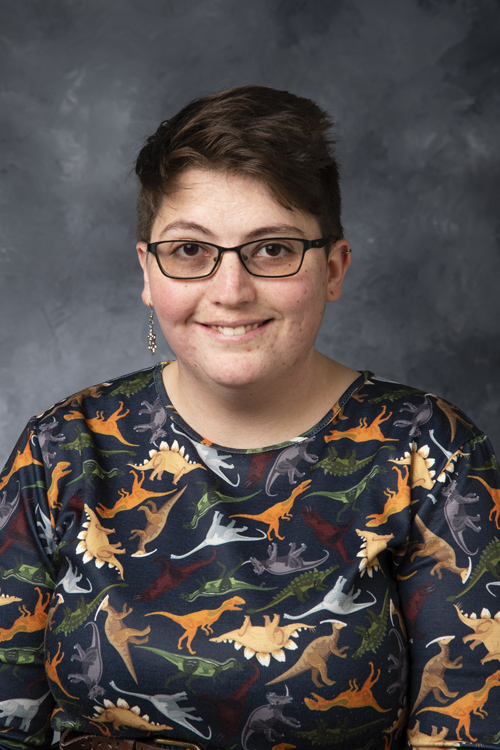
Michelle Tamplin, Ph.D. student, Free Radical and Radiation Biology
Studies radiation side effects
• Hometown: La Habra, California
• Faculty mentor/advisor: Isabella Grumbach, Professor, Internal Medicine
• What is your degree program and expected graduate date? Free Radical and Radiation Biology, PhD; May 2021
• Please describe your research: I study how radiation damages normal tissues surrounding a cancer; specifically, the small blood vessels located within the field of radiation. We believe small vessel damage is the driving force behind many long-term side effects, such as heart failure and cognitive dysfunction after irradiation for breast and brain cancers. I currently study this in ocular melanoma patients, however we expect the work will be translatable to other systems, especially the brain.
• In simple terms, why does this research matter? Our current understanding of how normal tissue injury develops is severely limited, mainly because we are unable to visualize the small blood vessels that provide oxygen and nutrients to normal tissues. The eye is unique, however, because its front is completely clear, making it accessible to what are essentially sophisticated photography methods. Using these methods, we can obtain a wealth of information about how small vessels are damaged after radiation exposure; we hope this will teach us how to keep patients from developing normal tissue injury, allowing them to maintain an elevated quality of life after their cancer treatment.
• How soon after starting at the University of Iowa were you able to participate in research? I started research as soon as I arrived at Iowa.
• How has being involved in research made you more successful at the University of Iowa? Until I was involved in research, I could only excitedly write the equations and reactions that describe how the jolt of energy that is radiation separates an electron from water and initiates a cascade of reactions in tissue. Seeing these fundamentals at work in my research study subjects provides a context more humanizing and inspiring than anything else in my academic training.
• What are your career goals and/or plans after graduation?
My goal is to work at a tier 1 research university doing translational research, centered on normal tissue injury and radiotherapeutics. I hope to mentor students in developing a holistic understanding of their science, from the underlying physics and chemistry to the potential impact on society.
Banner location: not on display—
